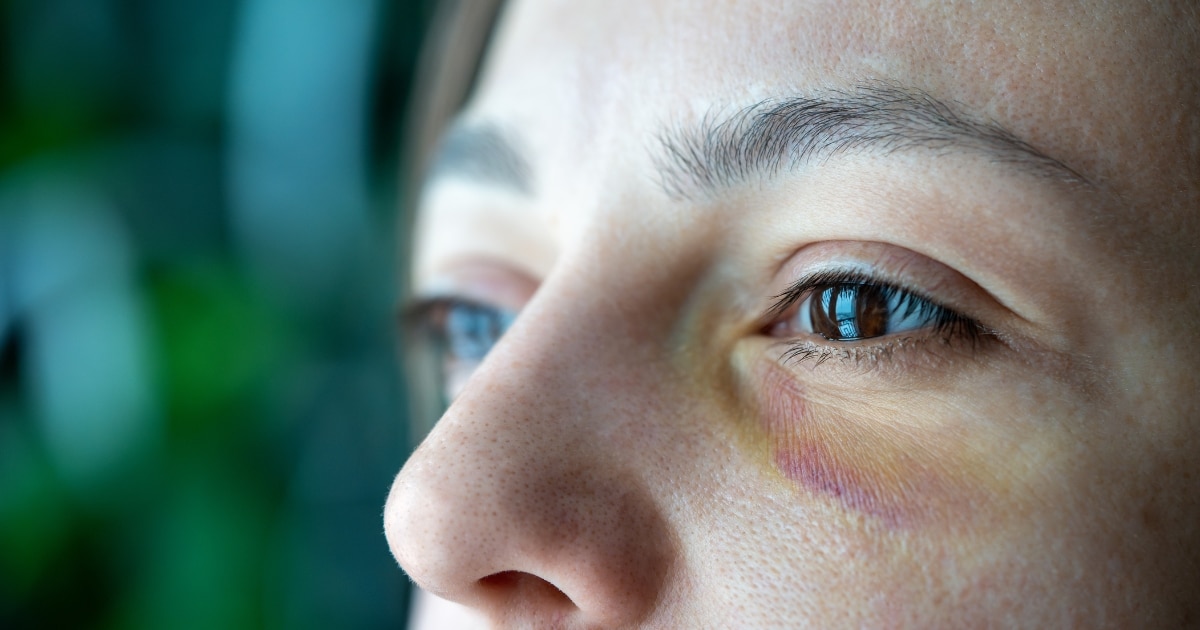Have you ever looked in the mirror and noticed a bruise around your eye, wondering how it got there? Eye bruises, often called “black eyes,” aren’t just caused by getting hit in the face. Several factors can lead to this alarming condition. While some are harmless, others might signal a more serious issue, requiring prompt action. So, what exactly causes bruising in the eye, and when should you be concerned enough to seek emergency eye care?
Why Do Eyes Bruise?
An eye bruise is caused by blood vessels breaking under the skin. Blood leaks into the surrounding tissue when these vessels rupture, leading to discoloration. Initially, the area might appear red or purple, then fade into shades of blue, green, and yellow as it heals. While most bruises are harmless and fade over time, the reasons behind them can vary widely.
Common Causes of Eye Bruising
1. Injuries and Trauma
The most prominent cause of an eye bruise is physical injury. Whether it’s from a punch, a fall, or accidentally bumping into something, trauma to the face or head can easily lead to bruising around the eye. Sports-related injuries are also common culprits, particularly in activities like boxing, football, or basketball, where impacts to the head are frequent.
The force can damage blood vessels beneath the skin when a blow occurs. Even if the eye isn’t hurt, the area around it may swell and bruise. While most trauma-induced bruises heal without much intervention, it’s essential to monitor for additional symptoms like vision changes, severe pain, or swelling, as these might require emergency eye care.
2. Sinus Infections
Believe it or not, something as familiar as a sinus infection can lead to eye bruising. The sinuses are located close to the eyes, and when they become inflamed or infected, the pressure can sometimes affect the blood vessels around the eyes. This can cause discoloration or bruising, especially if the infection is severe.
If you’re dealing with a sinus infection and notice any bruising or swelling near your eyes, it’s crucial to consult a healthcare professional. Though it may resolve independently, persistent symptoms might indicate the need for more comprehensive treatment.
3. Allergic Reactions
Allergies can do more than make you sneeze. Severe allergic reactions sometimes cause swelling and bruising around the eyes. Known as “allergic shiners,” this type of bruising happens when congestion increases pressure in the blood vessels near the eyes, leading to a dark, bruise-like appearance.
Seasonal allergies, food reactions, or even reactions to makeup or skincare products can trigger this bruising. To prevent it, managing your allergies through medication or avoiding known triggers can make a big difference. If swelling worsens, seek medical attention promptly, as some allergic reactions may require emergency eye care.
4. Blood Disorder
Blood-related conditions, such as hemophilia or thrombocytopenia, can make you more prone to bruising—even around the eyes. These disorders affect the body’s ability to clot properly, which means even minor bumps or pressure can result in visible bruises.
If you’re prone to frequent or unexplained bruising, especially near your eyes, it may be worth exploring whether an underlying blood disorder could be the cause. A medical professional can run tests to determine if there’s a clotting issue at play and provide guidance on managing the condition.
5. Eye Surgery or Medical Procedures
Undergoing eye surgery or cosmetic procedures around the eyes can sometimes lead to temporary bruising. Surgeries like cataract removal, eyelid surgery, or even Botox injections can cause blood vessels to break, resulting in discoloration. While this type of bruising is usually expected and temporary, it’s always important to follow post-procedure instructions carefully to ensure proper healing.
If bruising after surgery doesn’t improve or seems to worsen, it might indicate complications, and seeking emergency eye care could be necessary.
6. Blood Thinners and Medications
Certain medications, like blood thinners or aspirin, can increase the likelihood of bruising. These medications reduce your blood’s ability to clot, making you more susceptible to bruising even from minor bumps or pressures.
If you’re taking blood-thinning medications and notice frequent bruising near your eyes, it’s crucial to discuss this with your healthcare provider. They may adjust your dosage or offer tips for minimizing bruising risks while managing your overall health.
7. Aging
Our skin becomes thinner as we age, and blood vessels become more fragile. This makes bruising more common, especially in delicate areas around the eyes. While aging-related bruising may not always be preventable, taking steps to protect the skin from trauma can help.
Gentle skin care, sun protection, and a healthy lifestyle can reduce the chances of developing bruises. If bruising appears without apparent cause or becomes frequent, it’s wise to consult a doctor for further investigation.
When to Seek Emergency Eye Care
While most eye bruises are harmless and heal on their own, there are situations where you’ll want to get medical help quickly. If you experience any of the following symptoms, don’t hesitate to seek emergency eye care:
- Vision changes, like blurriness or double vision
- Severe pain or discomfort in the eye
- Extreme swelling around the eye or face
- Blood in the eye or changes in pupil size
- Difficulty moving your eye or eyelid
- A bruise that doesn’t improve after a few days
In these cases, eye bruising could indicate a more severe issue, such as an eye injury, fracture, or internal bleeding.
How to Protect Your Eyes?
Preventing bruising isn’t always possible, especially when it comes to accidental injuries. However, there are some simple steps you can take to protect your eyes and reduce the risk of bruising:
- Wear protective eyewear during sports or activities that risk your eyes.
- Treat sinus infections promptly to avoid complications that could lead to eye bruising.
- Manage allergies to prevent allergic shiners from developing.
- Be cautious with medications like blood thinners, and talk to your doctor about reducing bruising risk.
- Handle your skin gently, especially around the eyes, to avoid unnecessary pressure.
Bruising around the eye can be alarming, but understanding its causes can help you take the proper steps for treatment and prevention. Knowing when to seek emergency eye care in Atascocita is essential. If you’re ever unsure, it’s always better to err on the side of caution and consult a healthcare provider.
Take care of your eyes—they’re not just windows to the soul but essential to your everyday life. Stay informed and proactive to keep your eyes healthy and strong for years.


